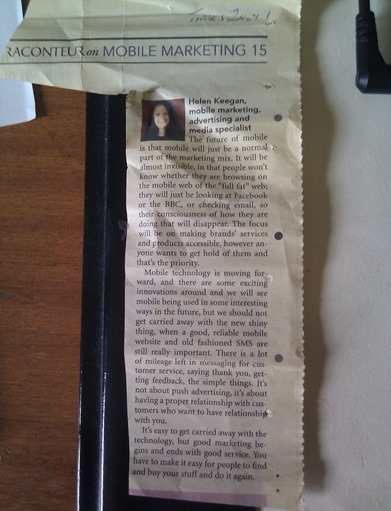The rather good Reuters Institute Digital News Report 2013 is out now. It’s quite a long report – you can download a copy here and below you’ll find the PowerPoint charts that support the report.
I won’t lie, there’s a lot to read here and, clearly, a lot of work went into it and I will be taking my time to go through it all.
The short version based on what I’ve read so far is…
- News is becoming more mobile, more social, and more real-time
- Digital patterns becoming more entrenched – particularly amongst the younger half of the population
- Audiences increasingly want news on any device, in any format, and at any time of day.
- Digital revolution is not proceeding at an even pace in all countries.
- Social media take-up varies across countries
- Ever-greater competition and more disruption to business models to come
- More people say they've paid for digital news in the past 10 months so there’s still hope
Some of these points are no surprise to those of us working in mobile. And it just confirms that the pace of change is fast. Even if you’re not in the newspaper industry, I think this is worth a glance as it reveals some key trends that are relevant and of interest to other sectors.
Based on the methodology, the UK findings are perhaps the most pertinent as that’s where there were the highest level of respondents. Of course, they did only survey a limited amount people so it’s a representation but the data was weighted to targets set on age and gender, region, newspaper readership, and social grade to reflect the total population of each country. The sample is reflective of the population that has access to the internet.
As if you need any further convincing that now is the time to get your mobile strategy sorted, maybe this reports will be the nudge you need if you’re not already on the case.
Interested to hear your thoughts and examples of other recent reports that back up or contradict Reuters’ findings.



